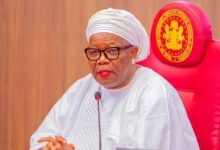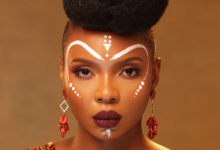Report Reveals 53% of Women with Disabilities in Nigeria Experience GBV, Urges Inclusive Action

|
Getting your Trinity Audio player ready...
|
A research report on the Prevalence and Drivers of Gender violence (GBV) Among Women with Disabilities (WWDs) in Nigeria has revealed that 53% WWDs across Nigeria have experienced GBV.
This was disclosed at the validation of the research report, which was carried out by the Centre for Inclusive Development (CID), in collaboration with the Joint National Association of Persons with Disabilities (JONAPWD), and supported by the Ford Foundation.
While speaking about the research findings at the validation exercise, the Research Coordinator, Esther Ijeaku, shared that 53% of the cases recorded were self-reported, and there are tendencies of underreportage due to cultural barriers, social norms, and dependence on the perpetrator.
Ijeaku stressed that the findings revealed women with disabilities are targeted as ‘easy prey’ due to stigma, economic dependence, and isolation.
“Risk and vulnerability factors are types of disability and visibility, dependence on caregivers, economic insecurity, social isolation, harmful cultural beliefs, weak legal protection and inaccessible services,” Ijeaku said.

Speaking about the research recommendations, Ejiro Sharon-Okotie, the Executive Director of Hope Inspired Foundation for Women and Youth with Disabilities (HIFWYD) and one of the CID Research Assistants for the South East region, shared that duty bearers are expected to “build institutional capacity of police, legal aid, GBV responders; ensure disability data captured in GBV reports, and allocate dedicated budgets for disability-inclusive GBV response.”
Sharon-Okotie earlier noted that the research’s objectives were to “identify key factors contributing to GBV against WWDs; assess barriers and effectiveness of current GBV interventions; and provide actionable recommendations for inclusive GBV prevention and response.”
She explained that the recommendations cut across duty bearers, rights holders and non-state actors, with each stakeholder group expected to take key steps to prevent GBV against women with disabilities.
Participants at the validation exercise also recommended developing a directory where WWDs can access GBV support services, from prevention to survivor support.
The exercise witnessed the presence and delivery of remarks from the representative of the National Agency on the Prohibition of Trafficking in Persons (NAPTIP), Mrs Rose Paul; the Permanent Secretary of the Ministry of Women Affairs, Dr Maryan Ismaila Keshinro, represented by Mrs Julie Akharia, and the representative from the National Commission for Persons with Disabilities (NCPWD).
The Research Assistants who led the qualitative study across the country were: Blessing Oladunjoye – South West; Ejiro Sharon Okotie – South East; Eno Sandra Uyebi – South South; Tracy Onabis – North Central; Bilkisu Ado Zango and Hannatu Ahuwan – North West; and Aishat Adamu and Rona Saleh Tula – North East.
Editor’s note: This report was first published on BoNews Service.






